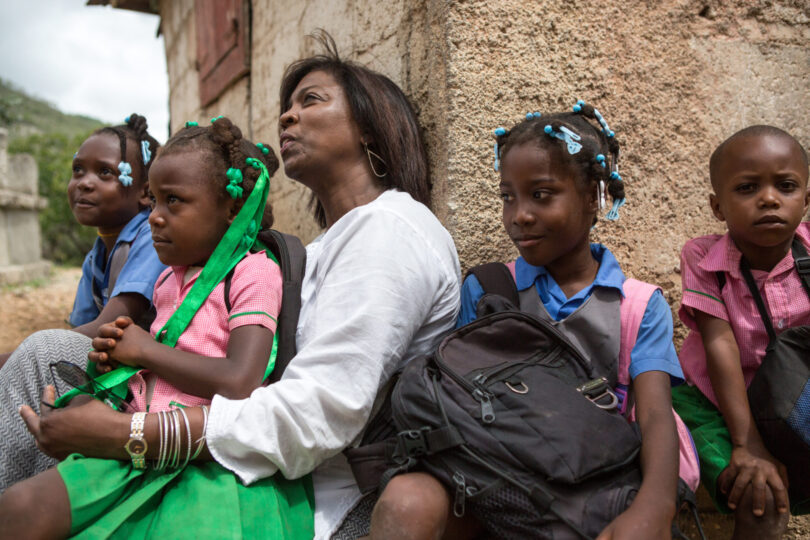In recent years, estimates for the amount of people affected by global hunger has risen to more than 800 million. That’s 10% of the global population. For Ambassador Ertharin Cousin JD ’82, transforming our food systems has been her life’s mission and what she believes is the key to ending world hunger.
As a CEO and educator, Cousin, a former U.S. ambassador to the United Nations Agencies for Food and Agriculture, travels from country to country in pursuit of a single goal: creating a malnutrition-free world.
Cousin earned her bachelor’s degree from the University of Illinois at Chicago in 1979 and, after receiving a three-year scholarship, graduated from the University of Georgia’s School of Law. From 2012 to 2017, she served as executive director of the United Nations World Food Program, an ambassador-level position, working from Syria to the Sahel to help feed 80 million people a year in roughly 80 countries.
For more than 40 years, Cousin has been tackling the global food insecurity issues brought on by conflict, climate change, and food deserts, which are defined as areas where people do not have access to healthy, affordable food.
“There were places where babies didn’t starve because of the work that we did,” says Cousin.
Now, as the founder and CEO of Food Systems for the Future, her day-to-day is still far from the norm.
“I’ve had these moments where I’m sitting with a mother in South Sudan and she’s telling me, ‘Because of the work that you did, my children are healthy.’ It’s a pretty powerful feeling,” she says.
Food Systems for the Future invests in policy development and financial support for businesses—like grocery stores and farms—that can increase access to food and eliminate food deserts. Cousin believes the key to solving world hunger lies in building an infrastructure that allows people to support themselves.
Cousin’s work has earned her appearances on some impressive lists: Forbes’ 100 Most Powerful Women, Time’s 100 Most Influential People, and the 500 Most Powerful People on the Planet by Foreign Policy magazine. But while Cousin appreciates when the news spotlights the issues dear to her, many hunger crises can go unnoticed by the public.
With growing numbers of food deserts worldwide and several billion people who lack access to affordable, nutritious food, Cousin’s work is now more important than ever. It includes making the case for investments across the food value chain – from creating an equitable food system that provides for all to ensuring the financial return for everyone who supports the food system. The process begins with farmers and runs all the way to investors.
“It’s all connected. Taking these issues as a whole—sustainability, our environmental health, market-driven agriculture—is critical.”
Every day, Cousin invests more of herself in the future of food security but doesn’t do it alone. Her team members, volunteers, peers, and mentors are all part of this journey toward creating resilient food systems for a better, more sustainable world.
“It’s important that people recognize these issues are not somebody else’s problem. You cannot have a stable society if the people in it are hungry and malnourished,” Cousin says. “That’s why this is work that I do on a full-time basis. But it is an effort that requires support from every corner, and I’m proud to work with so many people working to make a difference in people’s lives.”








